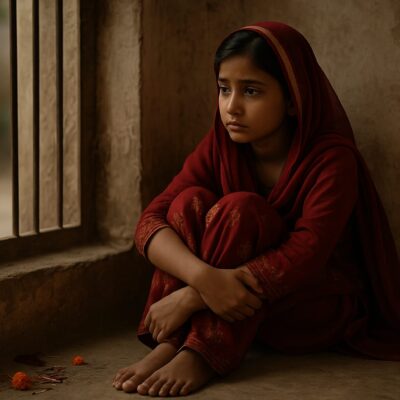Imagine a single act that takes less than an hour but could save up to three lives. That’s the power of blood donation—a simple, selfless gesture with a ripple effect of hope and healing. In Pakistan, where accidents, surgeries, and chronic illnesses create a constant demand for blood, every donation is a lifeline. This blog post dives into why blood donation matters, exploring how it helps people in critical need, from trauma victims to those battling lifelong conditions. We’ll also walk you through the blood donation process in Pakistan step-by-step, making it easy for anyone to get involved. Whether you’re curious about the benefits or ready to roll up your sleeve, this guide is here to inform and inspire you. Let’s uncover the life-saving gift of blood donation together!
Why Blood Donation Matters: The Benefits for Recipients
Blood donation isn’t just a medical procedure—it’s a bridge between life and loss. Every drop you give can help someone recover, survive, or keep going. Here’s how it makes a difference for people facing various medical challenges.
Surgeries: Keeping Patients Stable
Surgeries often mean blood loss, and sometimes a lot of it. Whether it’s a planned procedure like a cesarean section or an emergency operation like repairing a ruptured organ, blood transfusions are critical to replace what’s lost. In Pakistan, thousands of surgeries happen daily—think heart bypasses, kidney transplants, or even childbirth complications. Without donated blood, these procedures could halt, putting lives at risk.
- Real Impact: A mother undergoing a difficult delivery might need multiple pints of blood to survive postpartum hemorrhage. Your donation could be what keeps her with her newborn.
Accidents: A Race Against Time
Road accidents, falls, or workplace injuries can cause sudden, severe blood loss. In these emergencies, every second counts. Blood transfusions stabilize patients, giving doctors time to stop bleeding and repair damage. In a bustling country like Pakistan, where traffic accidents are all too common, having blood ready in hospitals is a game-changer.
- Real Impact: Picture a young motorbike rider rushed to the ER after a crash. Donated blood keeps his heart pumping while surgeons work to save him.
Chronic Illnesses: A Lifeline for the Long Haul
For people with conditions like thalassemia, hemophilia, or certain cancers, blood transfusions aren’t a one-time fix—they’re a regular necessity. Thalassemia, especially prevalent in Pakistan, means the body can’t produce enough healthy red blood cells. Patients need transfusions every few weeks to stay alive and active. Your donation provides the oxygen-carrying cells they desperately need.
- Real Impact: A child with thalassemia gets a transfusion every month, thanks to donors. That blood lets her play, study, and dream like any other kid.
Benefits of Blood Donation:
- Saves Lives: A single donation can help up to three recipients.
- Boosts Donor Health:
- Reduces iron overload, lowering heart disease risk.
- Triggers new blood cell production, revitalizing your system.
- Free Health Check: Donors receive a mini-physical (blood pressure, hemoglobin, etc.) and screening for infections like HIV and hepatitis.
- Community Strength: Your donation supports accident victims, cancer patients, and those with chronic illnesses.
Who Needs Blood? Medical Conditions Requiring Transfusions
- Accidents & Trauma:
- Road accidents claim over 27,000 lives annually in Pakistan. Severe bleeding requires immediate transfusions.
- Surgeries:
- Open-heart surgeries, organ transplants, and C-sections often need 2–5 units of blood.
- Chronic Illnesses:
- Thalassemia: Over 100,000 Pakistani children rely on monthly transfusions.
- Cancer: Chemotherapy patients need platelets to combat treatment side effects.
- Anemia: Severe cases, especially in pregnant women, require red blood cells.
Real Story: Ahmed, a thalassemia patient from Lahore, shares: “I’ve needed blood every month since I was two. Donors are my heroes.”
How to Donate Blood in Pakistan: A Step-by-Step Guide
Ready to donate? The process is simpler than you might think, and in Pakistan, it’s designed to be safe and accessible. Here’s your roadmap from start to finish.
Step 1: Find a Donation Center
Pakistan has a network of trusted organizations ready to welcome donors. Some top options include:
- Sundas Foundation: Focused on thalassemia patients and beyond, with centers across the country.
- Fatimid Foundation: A leader in blood support for chronic disorders.
- Shaukat Khanum Memorial Cancer Hospital: A trusted name offering blood donation opportunities.
Check their websites for locations or look out for mobile blood drives at schools, mosques, or community events.
- Pro Tip: Call ahead to confirm hours or book a slot—some centers let you schedule online!
Step 2: Register and Check Eligibility
When you arrive, you’ll fill out a form with your name, age, and basic health details. This helps staff ensure you’re fit to donate. Here’s what you’ll need to qualify:
- Age: 18–65 years old.
- Weight: At least 50 kg.
- Health: No active infections or serious illnesses.
- Timing: Haven’t donated in the last 8–12 weeks.
It’s quick and straightforward—just a few questions to keep everyone safe.
Step 3: Get a Mini Health Check
Before you donate, a nurse or technician will do a brief screening:
- Check your vitals (pulse, blood pressure, temperature).
- Prick your finger to test hemoglobin levels (to make sure you’re not anemic).
- Ask about your medical history or recent travel.
This step protects you and the person receiving your blood. It’s like a free mini check-up!
Step 4: Donate Blood
Now, the main event! Here’s how it goes:
- Setup: You’ll sit or lie on a comfy chair, and your arm gets cleaned with antiseptic.
- Needle Time: A sterile needle goes into a vein—usually your arm. It’s a quick pinch, then smooth sailing.
- Collection: About 450–500 ml of blood (less than a soda bottle!) flows into a bag. This takes 10–15 minutes.
- Done: The needle’s removed, and you get a bandage. Easy!
- Image: [Insert photo of a smiling donor mid-donation, captioned: “Donating blood is quick and painless—10 minutes to save a life!”]
Step 5: Rest and Recover
Post-donation care is simple but important:
- Hydrate: Sip water or juice (often provided by the center).
- Chill: Rest for 10–15 minutes before heading out.
- Take it Easy: Skip the gym or heavy lifting for 24 hours.
- Watch Yourself: Feeling dizzy? Sit down and let the staff know.
You’ll be ready to donate again in 8–12 weeks—mark your calendar!
- Video: Curious about the experience? Watch this WHO video on what happens after you donate.
Busting Myths
Nervous about donating? Let’s tackle some common myths holding people back:
- Myth: “It’ll make me weak.”
- Truth: Your body replaces the blood fast—within days, you’re back to normal.
- Myth: “It hurts a lot.”
- Truth: Just a brief pinch from the needle. Most say it’s no big deal.
- Myth: “I’m too busy.”
- Truth: The whole process takes about an hour, with the donation itself under 15 minutes.
- Myth: “My health isn’t perfect, so I can’t donate.”
- Truth: Many conditions don’t disqualify you—ask the center to be sure.
No more excuses—donating is easier and safer than you think!
The Crisis in Pakistan: Why We Need You
Pakistan’s blood supply is in a tight spot. The World Health Organization says we need 1–3% of the population donating regularly to meet demand, but we’re stuck below 1%. That’s thousands of units short daily, especially for rare blood types or patients with thalassemia.
- Fact: Over 8,000 units of blood are needed daily in Pakistan, but supply lags.
Your donation isn’t just a drop in the bucket—it’s a lifeline for someone waiting.
Blood Donation in Pakistan’s Culture
Wondering how blood donation fits with Pakistani values? Islam, the majority faith, champions helping others. Donating it is seen as a noble, charitable act.
- Inspiration: “Whoever saves one life, it is as if he has saved all of humanity.” (Quran 5:32)
If you’re unsure, chat with a local scholar or doctor—most agree it’s a beautiful way to give back.
Be a Hero
You’ve got the facts—now it’s time to act. Here’s how to start:
- Locate a Center: Visit Sundas Foundation or Fatimid Foundation online.
- Plan Your Visit: Book a time or drop by a blood drive.
- Invite Others: Bring a friend—double the impact!
- Call to Action: Donate today. One hour of your time could mean a lifetime for someone else.
The Gift That Keeps Giving
It is more than a medical act—it’s a human connection. It helps surgery patients heal, accident victims survive, and chronic illness fighters thrive. In Pakistan, the process is safe, simple, and open to all who qualify. With a dire need for donors, your contribution can tip the scales from shortage to sufficiency. So, why wait? Find a center, roll up your sleeve, and give the life-saving gift only you can provide.

Key Takeaways
- Life-saving benefits: It supports surgeries, emergencies, and chronic conditions like thalassemia.
- Easy Process: From finding a center to recovering, donating is quick and safe in Pakistan.
- Myths Busted: It’s not painful or weakening—most fears are unfounded.
- Urgent Need: Pakistan’s low donation rate means every pint counts.
- Cultural Fit: Donating aligns with the values of compassion and charity.
Be the change. Donate blood, save lives, and share this post to spread the word!
Read here: https://contropulse.com/the-life-saving-benefits-of-blood-donation/
Read here: https://contropulse.com/breaking-the-myths-the-truth-about-blood-donation-in-pakistan/





17 Comments